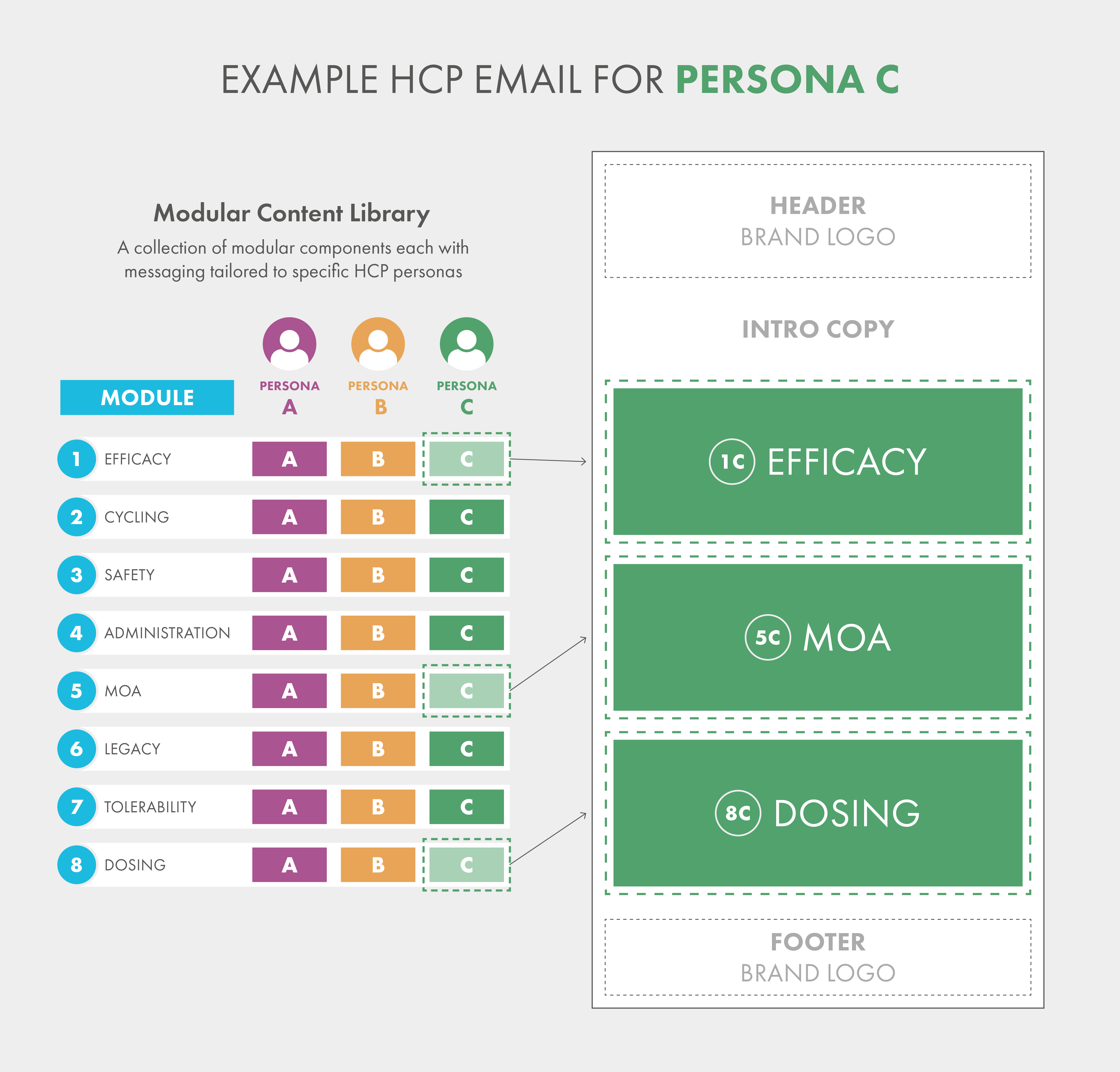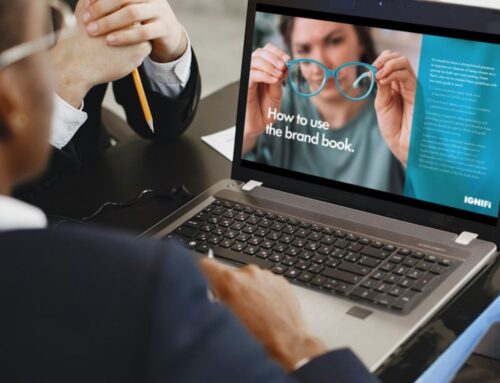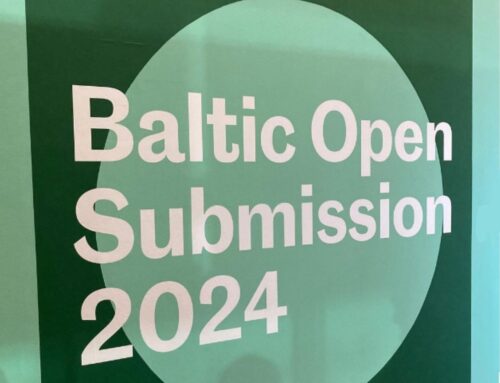
The concept of omnichannel often gets confused with multichannel, with many pharma companies believing they are operating omnichannel when in fact it is a multichannel approach. In this blog, we go beyond the omnichannel buzzword explaining the key considerations for healthcare marketers and how modular content can help to deliver personalised communications in the transition from a multichannel approach.
The role of omnichannel in healthcare
So, cutting straight to the point, what is the difference between multichannel and omnichannel?
Multichannel marketing is using more than one channel, which has often been created gradually, for the same message. These channels have often been developed independently of one another with the expectation that healthcare professionals (HCPs) would use the information themselves. In contrast, omnichannel marketing is the principal of creating an ecosystem of channels which are interconnected and have been designed to work in symbiosis with one another.
Omnichannel is a customer-centric approach, allowing HCPs to move through an optimised content journey, building upon messages from previous channels to increase engagement and belief in your single-minded message.
The channels utilised by omnichannel can often be similar to that of multichannel, however they are used in a purposeful way to achieve an improved customer experience and high level of interaction. For example, an approved email targeting a HCP’s individual needs will have a call to action to take them to a website for more detailed information. Another email is then used to invite them to a detailing presentation or a webinar discussing the latest scientific data. Each channel allows the story to build and unfold in a way that targets the HCP’s specific needs.
The level of customer journey sophistication can be altered depending on the digital practices that are currently being utilised and the brand’s ambition. For instance, highly targeted and personalised communications that precisely meet different kinds of customer needs may not always be required, and a simpler approach can be implemented with greater effect.
No matter where a customer is on their digital journey, omnichannel marketing presents many challenges for organisations. The need for more personalised content requires thought around different HCP personas; who are they, what are their needs, what is their current state and what is the desired state? Existing content then needs to be adapted to meet these established needs. Often, modular content is used as best practice to ensure consistency across channels but can take a lot of organising upfront. However, the benefits of omnichannel can often make all these challenges worth the effort in the long run – especially when looking to maintain consistent imagery and messaging at a local level.
The importance of personalised communication
In an age of content saturation, it is essential to make sure your messaging stands out and resonates with your intended target audience and persona type. Personalised communication is a great way to influence, inform and educate audiences with varying beliefs and needs, enhancing engagement rates with the material presented to them. This can be especially important when thinking about disease and therapeutics that can be of great complexity, involving multiple stakeholders.
There is a high expectation by HCPs for personalised communications. A recent report, which interviewed over 8,000 HCPs across the globe, stated that 57% of HCPs preferred omnichannel engagement with pharma. However, only 8% of HCPs were reached by an omnichannel rep1. This huge disparity between supply and demand shows that HCPs are ready and willing to engage in omnichannel marketing, but pharma is not yet meeting their needs.
The right communication strategy has more power to influence HCP, and even patient, behaviour, value and motivation. Therefore, understanding your target HCP personas is pivotal to determine the type of content and channel for an effective omnichannel marketing execution.
Modular content and omnichannel
An efficient approach to developing personalised communications that are consistent across all channels is to use modular content. Modular content categorises content (messaging, copy and visuals) by a specific subject and uses nuanced messaging that speaks to different personas.
It is possible to repurpose existing content into the modular style. Tailoring relevant content for the correct target audience and segmenting what may have been a very “one size fits all” approach can create a new experience for the HCP and increase their engagement with the material.
Each modular component has a clear single-minded message, intended audience, and intended adoption ladder targets. Suggestions can also be made on which other modular components should be combined for greatest impact. The content can then be used across multiple channels in a uniform manner. For example, modular content that details information on efficacy can be leveraged for use in a detail aid, rep-triggered or mass email, leave behind and websites, with a consistent look and feel throughout.

This prescriptive approach not only allows for greater consistency across channels from a global to a local level, but it also improves the speed at which materials can be developed and used. The flexibility offered by modular content increases re-usability across local affiliates. For instance, additional content can be used by countries where a competitor has entered their landscape, or recommendations can be made to use more entry level content in an emerging market.
Despite being a term that causes frustration to many marketers, it’s clear an omnichannel approach can facilitate more impactful, personalised communication between brands and HCPs.
There are many challenges to navigate, regardless of where your organisation is on the journey to omnichannel. But the common theme that IGNIFI has identified, from working with a variety of global and local healthcare clients and brands, is the necessity to create more personalised content. No matter what stage of this journey you find yourselves, it should deliver the right message, at the right time.
For more information about how we can work with your brand to adapt and personalise your existing content or support you with producing modular content, please get in touch.
Keep a look out on our blog page for our next omnichannel blog which outlines the key challenges when moving from a multichannel approach and how these can be managed.








